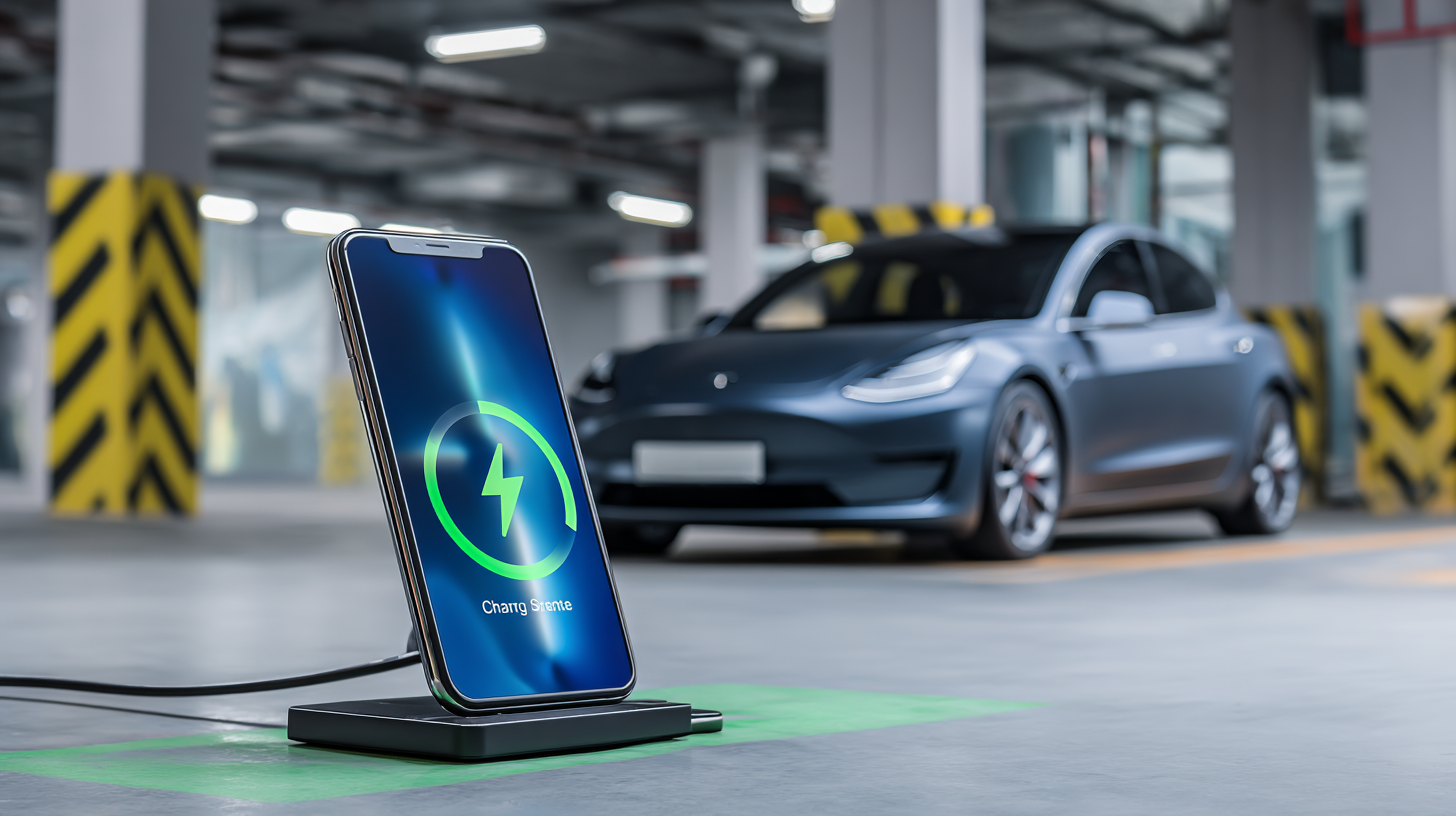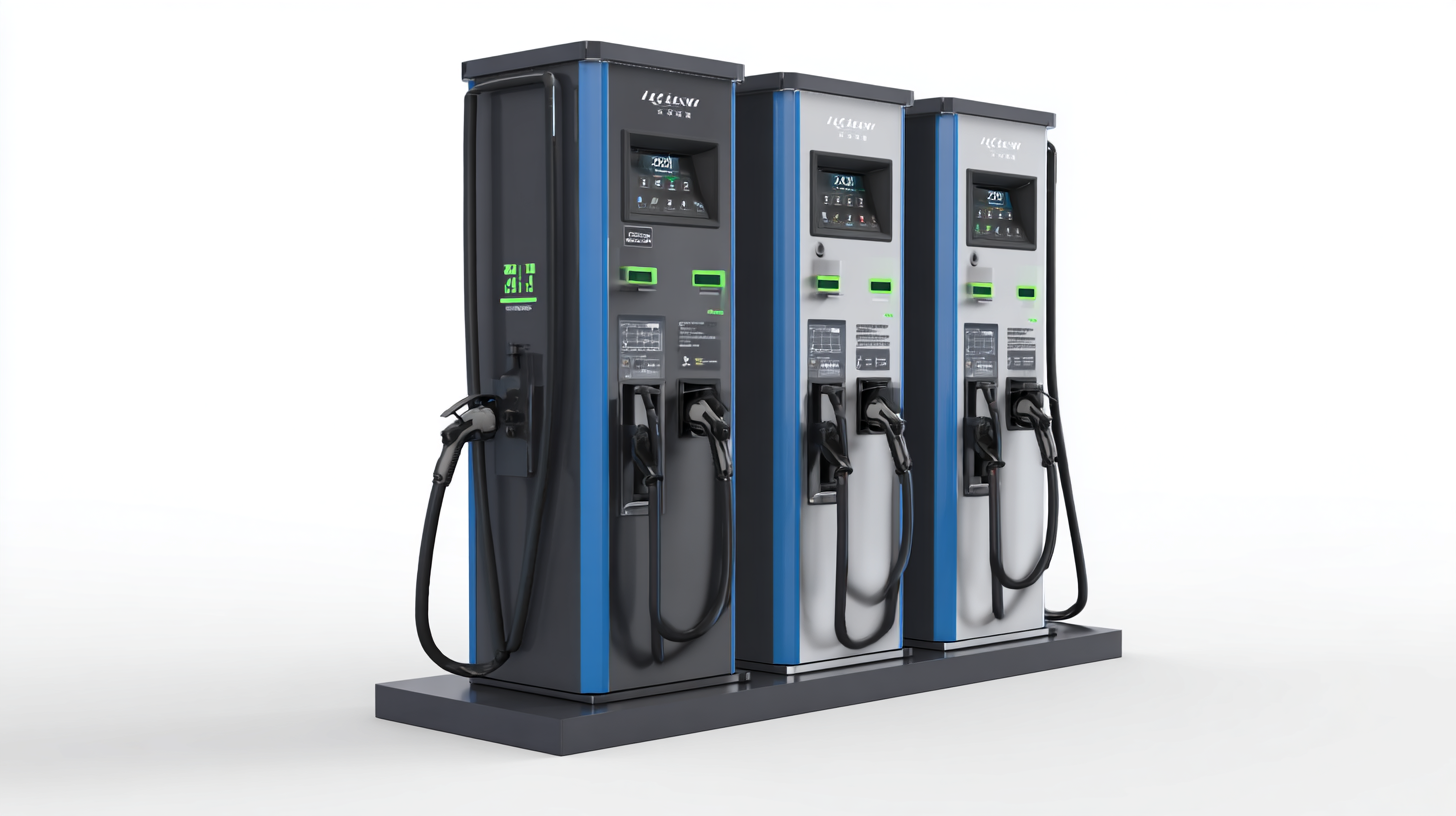Innovative Solutions for Efficient Charging Station Performance Optimization
As the electric vehicle (EV) market continues to accelerate, with a projection that global sales will reach 45 million units by 2040 according to BloombergNEF, the importance of efficient Charging Stations has never been more pronounced. With this growth, optimizing the performance of Charging Stations becomes essential to meet increasing demand and ensure user satisfaction. A recent study by the International Energy Agency (IEA) found that the number of public charging points worldwide must triple by 2030 to support the burgeoning EV population. Consequently, innovative solutions that enhance Charging Station functionality, reduce wait times, and streamline energy distribution are critical for future infrastructure development. This ultimate guide delves into effective strategies and technologies designed to optimize Charging Station performance, ensuring they can adequately support the evolving landscape of electric mobility.

Innovative Technologies Driving Charging Station Efficiency
The topic of charging station efficiency has gained considerable attention as the demand for electric vehicles (EVs) continues to rise. Innovative technologies play a pivotal role in optimizing the performance of charging stations, driving not only higher energy efficiency but also enhancing user experience. Smart grid technology, for instance, introduces dynamic communication and control systems that vastly improve the management of energy resources. By enabling real-time data exchange, these systems facilitate efficient charging schedules and load balancing, thereby reducing strain on the grid and ensuring that EVs can be charged when energy is most abundant.
Moreover, advancements in battery technology and charging standards are crucial for the evolution of EV infrastructure. These innovations not only allow for faster charging times but also contribute to the longevity and efficiency of batteries. Additionally, the exploration of wireless charging technology represents a transformative leap, offering a seamless charging experience and reducing the need for physical connections. As the industry anticipates further developments, the focus remains on integrating these innovative solutions to create a sustainable and efficient charging ecosystem that meets the growing demands of electric mobility.

Strategies for Enhancing Charging Station Performance
The demand for electric vehicles (EVs) is skyrocketing, prompting a parallel need for efficient charging station performance. To enhance this performance, operators can implement several innovative strategies. One effective strategy involves optimizing the location of charging stations to minimize wait times and user inconvenience. By analyzing traffic patterns and the density of EV usage, operators can strategically place stations in high-demand areas, ensuring that drivers can recharge promptly without significant detours.
Another crucial aspect of performance optimization is the integration of smart technology. Installing real-time monitoring systems can help station managers track usage patterns, energy consumption, and maintenance needs. This data-driven approach allows for predictive maintenance, ensuring that stations are always operational and reducing downtime. Furthermore, incorporating mobile apps that provide users with updates on station availability and charging times can enhance user satisfaction and utilization rates. By prioritizing these strategies, charging station operators can not only improve efficiency but also foster a more reliable and user-friendly EV charging ecosystem.
Charging Station Performance Optimization
This chart represents the performance optimization strategies for charging stations based on various metrics. The data illustrates the average charging speed (kW), user satisfaction rating (1-10 scale), and station uptime percentage (%) across different strategies implemented.
The Role of Quality Manufacturing in Charging Solutions
The quality of manufacturing plays a pivotal role in the performance of charging stations, significantly impacting their efficiency and longevity. High-grade materials and meticulous construction techniques ensure that these stations can withstand varying environmental conditions, from blazing heat to torrential rain. When manufacturers prioritize quality, they not only enhance the reliability of the charging equipment but also reduce maintenance costs and downtime. This focus on durability creates an essential foundation for the extensive adoption of charging solutions.
Moreover, the integration of advanced technologies during the manufacturing process enhances the overall efficacy of charging stations. Innovations such as smart sensors and real-time monitoring tools, when incorporated into the production phase, lead to improved energy management and user experience. By investing in superior manufacturing processes, companies can deliver more efficient charging solutions that adapt to user demands and grid conditions, ultimately fostering a more sustainable electric vehicle ecosystem. Quality manufacturing is not just a fundamental aspect—it is a driving force towards achieving optimal performance in the charging infrastructure of tomorrow.

Sustainable Practices for Optimizing Charging Infrastructure
As the demand for electric vehicles (EVs) continues to rise, optimizing charging infrastructure becomes crucial for both performance and sustainability. Integrating sustainable practices into the design and operation of charging stations can significantly enhance their efficiency. For instance, utilizing renewable energy sources such as solar or wind power not only reduces the environmental impact of charging but also lowers operating costs over time.
By incorporating energy storage systems, charging stations can store excess energy generated during peak production times, ensuring a consistent power supply and reducing dependence on grid power during high-demand periods.
Furthermore, implementing smart technologies can dramatically improve the performance of charging stations. Advanced algorithms can be used to manage energy distribution and predict peak usage times, helping to prevent overloads while maximizing availability. Moreover, ensuring that charging stations are strategically located in high-traffic areas that encourage usage can contribute to better performance metrics. By fostering partnerships with local governments and businesses, charging networks can support sustainable urban development while promoting the use of EVs, thus paving the way for a greener future in transportation.
Future Trends in Charging Station Development and Innovation
The future of charging station development is poised to undergo significant transformation, driven by emerging technologies and the increasing demand for electric vehicles (EVs). According to a report by the International Energy Agency (IEA), the number of electric cars on the road is expected to reach 145 million by 2030, creating an urgent need for a robust charging infrastructure. Innovations such as ultra-fast charging stations, which can provide up to 350 kW of power, are gaining traction, enabling EVs to recharge in as little as 10 minutes. This shift not only enhances user convenience but also addresses concerns regarding range anxiety, a critical barrier to EV adoption.
In addition to hardware advancements, software innovations play a vital role in optimizing charging station performance. Integrating smart technology with charging networks allows for real-time monitoring and efficient energy management. A study from McKinsey & Company reveals that by utilizing demand response strategies, charging stations can reduce operational costs by up to 30%. Furthermore, cloud-based platforms can facilitate dynamic pricing models, encouraging off-peak charging and alleviating stress on the grid. As these trends continue to evolve, charging stations will not only become more efficient but also contribute to a sustainable and resilient energy ecosystem.
Innovative Solutions for Efficient Charging Station Performance Optimization - Future Trends in Charging Station Development and Innovation
| Dimension | Current Value | Future Projection | Innovation Type |
|---|---|---|---|
| Average Charging Time (min) | 45 | 20 | Fast Charging Technology |
| Number of Charging Ports | 10 | 30 | Multi-port Chargers |
| Energy Efficiency (%) | 85 | 95 | Smart Grid Integration |
| User Satisfaction Score (out of 10) | 7.5 | 9 | User Experience Enhancements |
| Annual Revenue Growth (%) | 12 | 25 | New Business Models |
